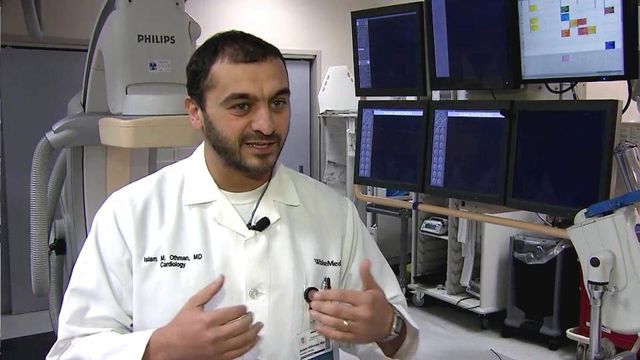Extreme cold could affect your heart health
Thinking of a cold-weather run? You might want to re-think it. The extreme cold might affect you in a way you haven't thought.
Posted — UpdatedThe extreme weather can affect heart health in even the healthiest of people, says Dr. Islam Othman, a cardiologist with WakeMed Faculty Physicians - Raleigh Cardiology in Raleigh.
"You've got to be very careful. As the weather gets colder, blood vessels narrow, and when that happens, the workload on the heart increases," Othman said Tuesday. "This is whether you have heart disease or don't have heart disease. You want to be vigilant of your time in these elements"
Because the heart is responsible for maintaining both the body's blood circulation and core temperature, Othman says it's best to try to avoid activities that can strain the heart when the temperature is in the teens and 20s.
Running and other physical activity have the opposite effect.
"During these frigid times, we're seeing temperatures that we haven't seen in decades and that we hope we won't see again for decades," Othman said. "I would say, for the next couple of days, it's not so imperative that you run outside."
For those who have to be outside, Othman recommends minimizing exposure and layering clothing to help keep the body warm and to reduce the risk of frostbite and hypothermia.
"Layering tends to be better than bulky coats, because it creates natural insulation," he said. "So, you're insulating yourself from the outside elements."
Covering the head is also important, he says, since the majority of heat escapes the body from the head. Ears are also sensitive to frostbite.
Another recommendation: Avoid eating a large meal before going outside and also avoid alcohol.
"It's a misconception that, if you drink alcohol, you'll have a warm sensation," Othman said. "Unfortunately, what happens is that the arteries and the blood vessels on the surface of the skin are enlarging, and that allows heat to escape. That increases the workload on the heart."
For those who do have heart health issues, as well as children and the elderly, Othman urges them to be vigilant of signs and symptoms that they might be in trouble – chest discomfort, chest tightness, shortness of breath or nausea – and to seek help immediately.
"By all means, take care of yourself and each other. Keep an eye on an elderly neighbor," he said. "This would be a really good time to share a warm cup of soup with them. That's very neighborly, especially during these times of extreme temperatures."
• Credits
Copyright 2024 by Capitol Broadcasting Company. All rights reserved. This material may not be published, broadcast, rewritten or redistributed.





